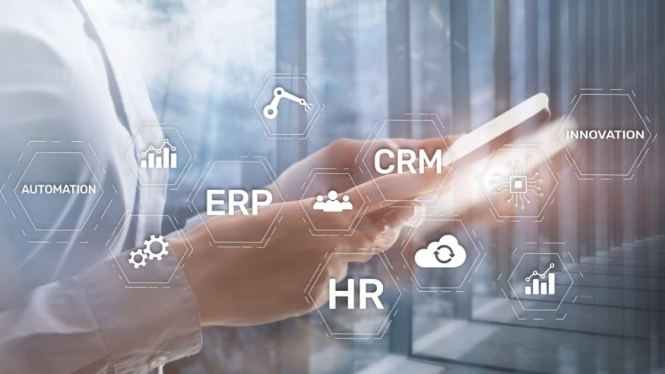Enterprice Resource Planning

FEATURES OVERVIEW
Enterprice Resource Planning
Enterprise Resource Planning (ERP) is an integrated management solution that combines various business processes, such as finance, supply chain, operations, reporting, manufacturing, and human resources, into a single cohesive and interactive software environment. This approach offers businesses a unified view of core processes using shared databases, ensuring real-time data availability and streamlined operations.
ERP systems improve efficiency by eliminating redundant processes and automating routine tasks, which in turn leads to significant time and cost savings. Moreover, they enhance decision-making by providing executives with timely and accurate business intelligence. Today, ERP solutions have become indispensable for businesses of all sizes, offering scalability and flexibility to adapt to changing business landscapes.
Features Information
Feature of the Product
Integrated Modules:
- ERP systems consist of various integrated modules that cover different functions, such as finance, human resources, manufacturing, supply chain management, sales, and customer relationship management (CRM). This integration allows for seamless data flow and real-time updates.
Centralized Database:
- ERP systems maintain a centralized database where all data related to different modules are stored. This centralization ensures data consistency and reduces redundancy.
Real-Time Data Access:
- Users across the organization can access real-time data, enabling timely decision-making and improving overall operational efficiency.
Customization and Scalability:
- ERP systems are often customizable to fit the specific needs of an organization. They should also be scalable to accommodate growth and changing business requirements.
Workflow Automation:
- ERP systems automate business processes and workflows, reducing manual tasks and enhancing productivity. This includes automating approval processes, order management, and inventory control.
Reporting and Analytics:
- ERP systems provide robust reporting and analytics tools, allowing users to generate various reports and analyze data to gain insights into the organization’s performance.
Financial Management:
- ERP systems include financial management modules for accounting, budgeting, financial reporting, and managing financial transactions. They ensure accurate and compliant financial data.
Human Resources Management:
- HR modules in ERP systems manage employee information, payroll, benefits administration, recruitment, performance management, and training.
Supply Chain Management:
- ERP systems help optimize the supply chain by managing inventory, procurement, demand forecasting, and order fulfillment. This ensures efficient operations and reduced supply chain costs.
Manufacturing and Production Control:
- Manufacturing modules in ERP systems support production planning, quality control, and maintenance, helping organizations efficiently manage manufacturing processes.

Interested in what Infinium Suite can do for you?
Links
Contact Us
- +8801714-042726
- info@infiniumsuite.com
- Morning Glory, Concord Colosseum, House# 19 Road No 13C, Dhaka 1213
